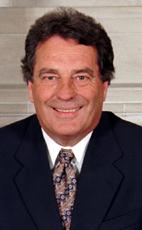Mr. Speaker, I am pleased to rise today to speak to Motion M-251, introduced by my colleague from Dauphin—Swan River, in Manitoba.
The objective of this motion is the creation of a memorial recognizing the outstanding contribution of Lieutenant Colonel William Baker, a first world war pilot and hero of Canada and the Commonwealth.
We agree in principle, but all the facts must surely be checked. This Canadian hero downed 53 enemy planes during the first world war and was awarded the Victoria Cross, the Military Cross, French and Italian military distinctions, six citations for acts of bravery from George V and other distinctions. Surely, he deserves recognition by future generations.
I do not doubt the facts, but personally I cannot verify them. The Historic Sites and Monuments Board of Canada was created for this very purpose in 1919, and we should call on this board, in this instance. I will therefore speak about this board in order to add weight to the bill that will be introduced.
Since 1979 the Historic Sites and Monuments Board of Canada has advised the government on the commemoration of individuals, of historical sites and events of national interest and the mounting of plaques to inform Canadians about their history. Over time and with changes to Canadian historiography, the board widened its scope to include military, political and geographical subjects and to the broader subjects of our social and economic history.
In reality, the board advises the minister on the commemoration of people, events, sites, structures and locations representing aspects of Canada's history of national importance. It also indicates the level of commemoration it deems appropriate, be it the installation of a plaque, the sharing of expenses with a third party or, more rarely, the acquisition or development of a site by Parks Canada.
It can provide information on important persons, places and events of the past, on the principles and techniques of site construction and preservation, and on heritage legislation. Each year, it receives over 200 requests, 50 to 70 of which result in studies by the historic services branch.
It has always viewed its plaque installation program as an educational activity in the broadest sense of the term. To date, it has installed over 1,100 commemorative plaques throughout the country. These are a testimony to its dedication to educating the public. An interesting fact is that it has broadened its definition of heritage to include cultural neighbourhoods, gardens and landscapes.
I therefore agree that the Historic Sites and Monuments Board of Canada should be called upon for advice. We could also follow the example of the Fondation des Amis de René Lévesque, in Quebec City, which is now raising funds in order to erect a monument in his memory.
We all know that not only was Mr. Lévesque a World War II war correspondent, but that he was a member of the Liberal Party of Quebec before founding the Parti Quebecois and becoming premier of Quebec. He was therefore a very important person.
In 1960, he was the father of the quiet revolution and the father of the nationalization of electricity in Quebec; he was also was instrumental in helping the Quebec Liberal Party regain power in Quebec after decades in opposition.
We also owe him the great democratic legislation on party fundraising, which eliminates slush funds, limits contributions and allows the public to participate in the financial control of the parties.
René Lévesque was also the driving force behind the constitutional reform undertaken in the 1980 referendum to save Canada. It is well known that he was trying to achieve sovereignty association in order to put an end to this idea of a federation justifying a centralizing and dominating government.
I could go on for hours talking about René Lévesque and quoting him as an example, but I will stop here for now and conclude by saying that this great man has no lack of feats to his credit, yet it will be his friends who will be putting up a memorial.
I therefore urge the hon. member for Dauphin—Swan River to take the advice of the Canada Historic Sites and Monuments Board or follow the lead of the Fondation des amis de René Lévesque regarding this memorial.

